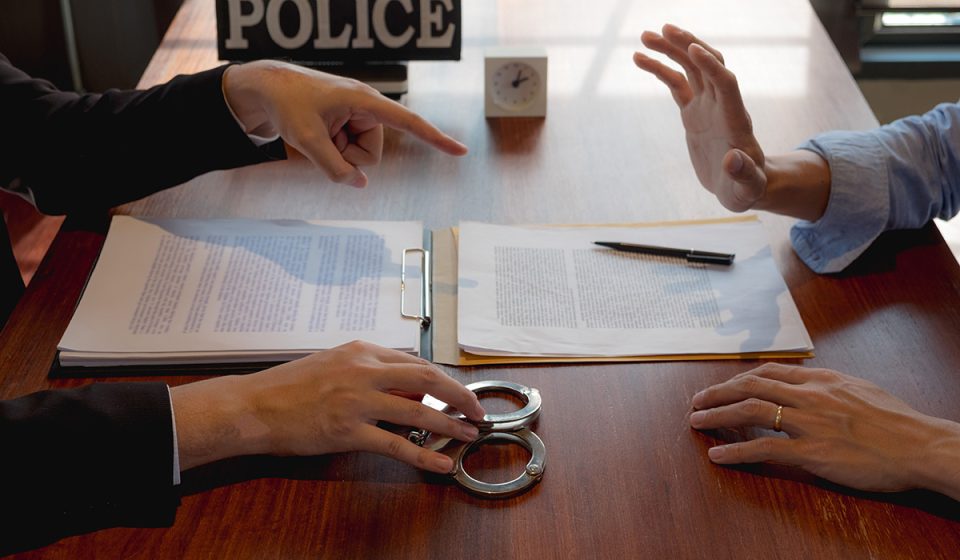
Notaries and the Unauthorized Practice of Law (UPL)
Being a notary public comes with trust, responsibility, and a legal boundary that must not be crossed: the unauthorized practice of law (UPL). While notaries are often approached for help with legal documents, stepping beyond your authorized duties — even with good intentions — can land you in serious legal trouble.
Table Of Content
- 🧾 What Is the Unauthorized Practice of Law?
- ❌ Common UPL Mistakes Made by Notaries
- 🚫 1. Choosing the Type of Notarial Certificate
- 🚫 2. Giving Legal Advice
- 🚫 3. Explaining Document Contents
- 🚫 4. Preparing or Completing Legal Documents
- 📊 Legal vs. Notarial: What’s the Difference?
- 🏛️ State Penalties for UPL
- 🔒 How to Stay on the Right Side of the Law
- ✅ Stick to Your Role
- ✅ Avoid “Helping” with Legal Questions
- ✅ Use Disclaimers When Necessary
- ✅ Refer to Professionals
- ✅ Know Your State’s UPL Laws
- 🧠 Quick Tip for Immigrant Communities
- ✍️ Final Thoughts
- 📌 Summary Checklist: Avoiding UPL
In this post, we’ll break down what UPL is, how it applies to notaries, and how to protect yourself from crossing the line.
🧾 What Is the Unauthorized Practice of Law?
The unauthorized practice of law refers to offering legal advice or performing legal services without being licensed to practice law in your state. Only attorneys who have passed the bar and are authorized by their state’s bar association can give legal counsel.
For notaries, this means you must stick to your official notarial duties and avoid doing anything that could be interpreted as practicing law.
❌ Common UPL Mistakes Made by Notaries

Here are some common activities that may constitute UPL when done by a notary:
🚫 1. Choosing the Type of Notarial Certificate
- Wrong: Telling the signer which certificate to use (e.g., jurat vs. acknowledgment)
- Right: Ask the signer to direct you, or suggest they speak to an attorney.
🚫 2. Giving Legal Advice
- Wrong: Telling someone what form they need for their immigration case or divorce
- Right: Direct them to the appropriate government agency or a licensed attorney
🚫 3. Explaining Document Contents
- Wrong: Describing what a power of attorney does or explaining loan terms
- Right: Read your notarial certificate aloud if needed — but don’t explain the legal meaning
🚫 4. Preparing or Completing Legal Documents
- Wrong: Filling in blanks or drafting a will, deed, or contract for someone
- Right: Only notarize the signature if the document is complete and the signer understands it
📊 Legal vs. Notarial: What’s the Difference?
Here’s a comparison to help clarify what notaries can and cannot do:
| Task | ✅ Permitted for Notaries? | ⚠️ Notes |
|---|---|---|
| Verifying a signer’s identity | ✅ Yes | Must follow your state’s ID laws |
| Administering an oath or affirmation | ✅ Yes | Core notarial act |
| Choosing a notarial certificate | ❌ No | This is legal advice |
| Drafting a legal document | ❌ No | Must be done by an attorney |
| Giving advice on immigration, divorce, or contracts | ❌ No | UPL — even if you're trying to help |
| Explaining legal rights | ❌ No | Only attorneys may do this |
| Providing a blank certificate | ✅ Yes | But you may not choose which one to attach |
🏛️ State Penalties for UPL
Engaging in UPL can carry serious penalties. States may issue fines, revoke your notary commission, and even pursue criminal charges depending on the severity and impact.
Examples of penalties include:
- Fines ranging from $1,000 to $5,000+
- Suspension or revocation of your notary commission
- Misdemeanor or felony charges, depending on the state
💬 Real example: A notary in California was prosecuted for preparing immigration forms and giving advice to non-English speakers — she was charged with UPL and had her commission permanently revoked.
🔒 How to Stay on the Right Side of the Law

Avoiding UPL isn’t just about protecting yourself — it’s also about serving the public with integrity. Here’s how to do it:
✅ Stick to Your Role
Only perform notarial acts — identifying signers, witnessing signatures, administering oaths, and filling out notarial certificates.
✅ Avoid “Helping” with Legal Questions
If a client asks for legal help, kindly say:
“I’m not an attorney and cannot give legal advice. You’ll need to speak with a licensed lawyer.”
✅ Use Disclaimers When Necessary
If you’re in a state like California that requires it, always use your official disclaimer (e.g., “I am not an attorney and cannot give legal advice.”)
✅ Refer to Professionals
Build a list of attorneys, paralegals, or legal clinics you can refer clients to.
✅ Know Your State’s UPL Laws
UPL definitions and enforcement vary by state. Familiarize yourself with your state’s notary handbook or website.
🧠 Quick Tip for Immigrant Communities

In many Spanish-speaking communities, the word notario is associated with attorneys. This often leads to confusion and legal issues.
If you serve diverse populations:
- Always clarify your role
- Display a clearly visible sign (in English and other relevant languages) stating you are not an attorney
- Never use the title “Notario Público” unless your state explicitly allows it and only with required disclaimers
✍️ Final Thoughts
Being a notary public is a powerful and trusted role — but it’s also one with clear legal boundaries. The line between notarization and law practice can be thin, but crossing it, even unintentionally, can have major consequences.
By understanding and respecting the limits of your duties, you protect yourself, your commission, and the people who rely on your services. When in doubt? Don’t guess — refer to a licensed attorney.
📌 Summary Checklist: Avoiding UPL
Before performing any notarial act, ask yourself:
✅ Am I sticking to identification and witnessing only?
✅ Have I avoided advising the client on legal choices?
✅ Did I decline to explain the document’s purpose?
✅ Have I recommended they consult an attorney if needed?
✅ Do I have a visible “no legal advice” disclaimer?
If the answer is yes to all, you’re likely on safe ground.


